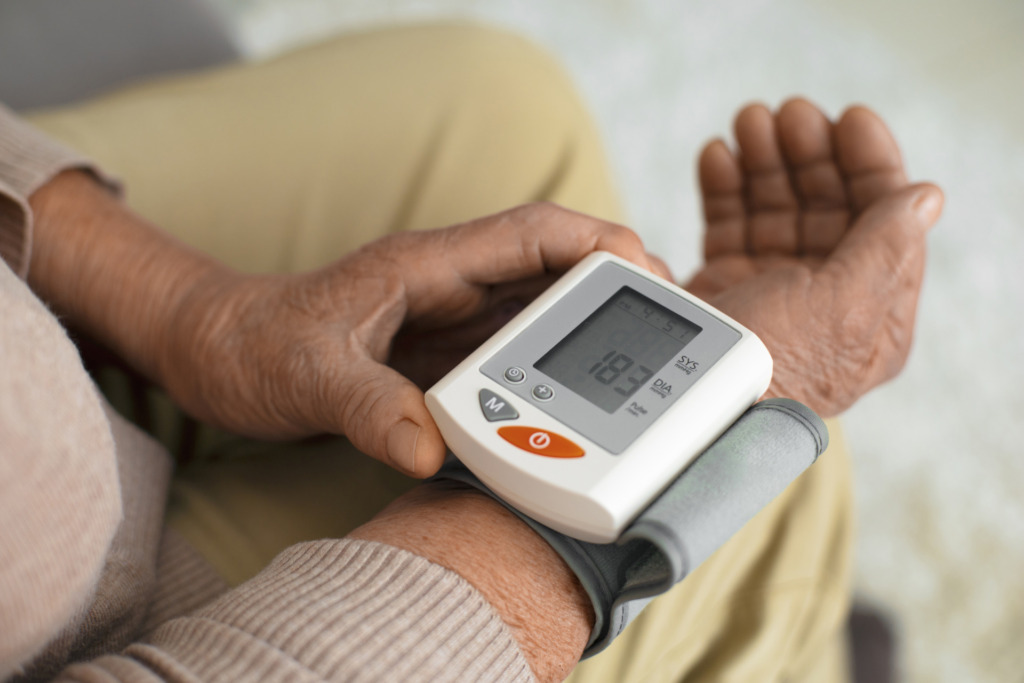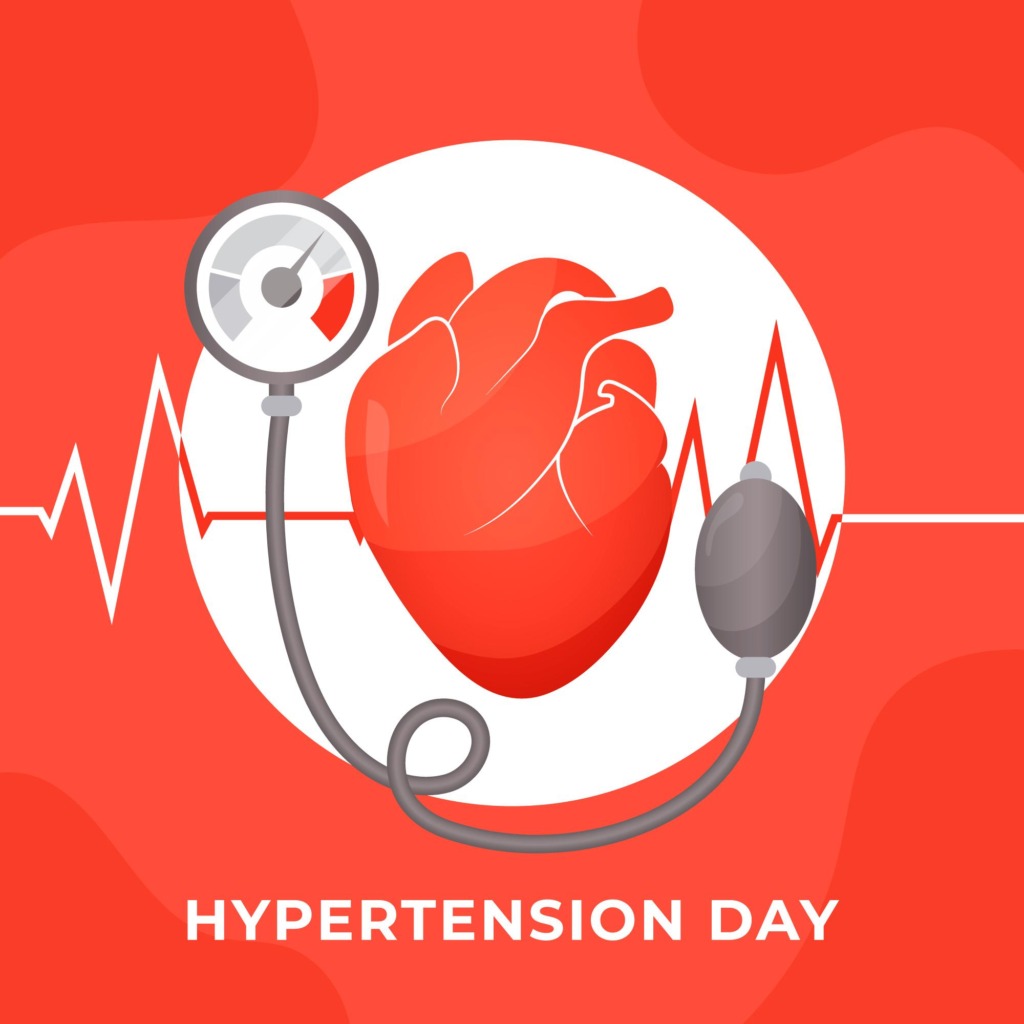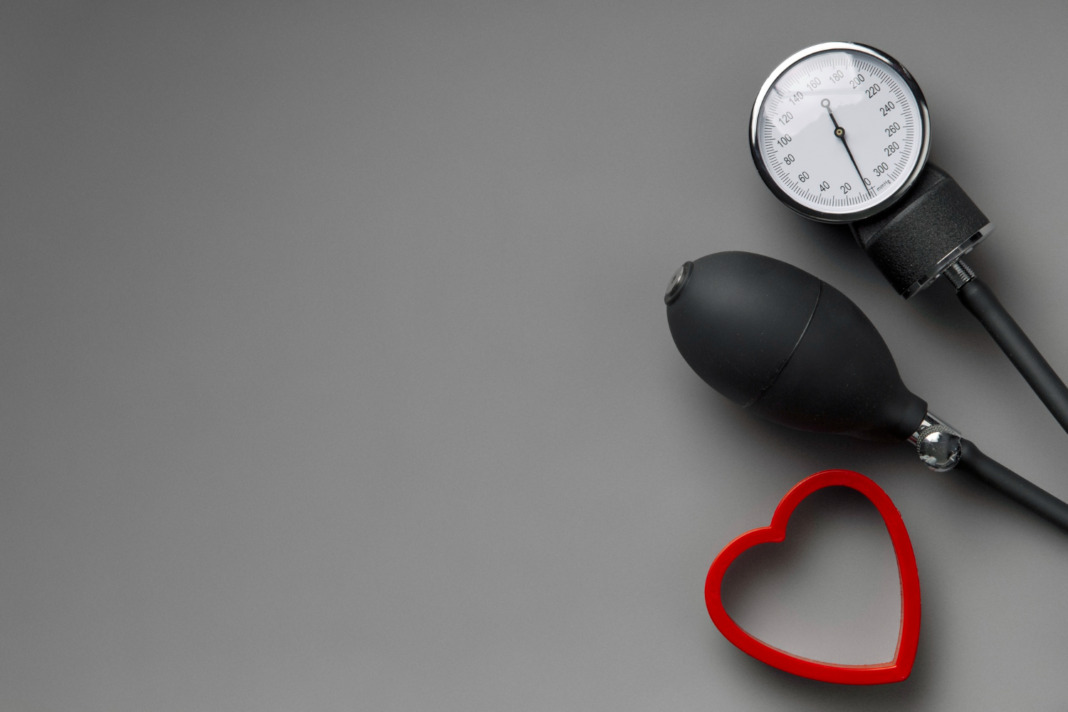What Is High Blood Pressure?
High blood pressure, also called hypertension, is when your blood regularly pushes too hard against the walls of your arteries. Serious health concerns like heart disease, stroke, and kidney problems might result from this. Systolic pressure, or the pressure when the heart beats, is greater than diastolic pressure, or the pressure when the heart is at rest between beats. Blood pressure is measured in millimeters of mercury (mmHg). Read on to learn more about the main causes of high blood pressure.
Generally speaking, hypertension is defined as a blood pressure measurement of 130/80 mmHg or more. It is commonly known as a “silent killer” since many individuals do not show any symptoms until serious heart and artery damage has taken place. While those over 65 are more likely to have high blood pressure, 1 in 8 adults between the ages of 20 and 40 also have the condition.
How Blood Pressure Is Measured
A sphygmomanometer, which is an inflated cuff worn around the arm, is used to measure blood pressure. The cuff is inflated to restrict the artery, then gradually deflated while a stethoscope or electronic sensor measures the pressure at which blood flow resumes.

Why High Blood Pressure is Dangerous
Elevated blood pressure increases the risk of cardiovascular disorders like aneurysms, heart attacks, and strokes by placing additional strain on your heart and blood vessels. It can also cause renal disease, eyesight loss, and cognitive deterioration over time.
The Major Causes Of High Blood Pressure
1. Lifestyle Factors
- Poor Nutrition and Diet: A diet heavy in processed foods, saturated fats, and sodium is one of the main causes of high blood pressure. Consuming too much sodium causes fluid retention, which in turn causes blood pressure to rise. Diets deficient in calcium, magnesium, and potassium can potentially aggravate hypertension.
- Absence of Exercise: Another significant factor that leads to high blood pressure is a sedentary lifestyle. Frequent exercise strengthens the heart, lowers stress chemicals that can raise blood pressure, and helps people maintain a healthy weight. When people don’t exercise regularly, their hearts have to work harder to pump blood, which raises the blood pressure in their vessels.
- Too much alcohol consumption: Excessive alcohol use might cause your blood pressure to rise several points. Heavy drinking can result in long-term blood pressure increases and cardiac damage over time. Moreover, it may conflict with drugs intended to reduce blood pressure.
- Use of Tobacco: Chewing or smoking tobacco instantly causes a brief rise in blood pressure. Tobacco products contain chemicals that can harm the lining of your arterial walls, narrowing your arteries and raising your risk of heart disease. High blood pressure can be influenced by passive smoking as well.
2. Medical Conditions
- Poor kidney health: The kidneys are essential in controlling blood pressure by managing the body’s fluid content. Blood pressure rises when the kidneys are unable to filter out extra fluid due to malfunctions. Hypertension is both the cause and the result of chronic kidney failure.
- Diabetes: High blood pressure and diabetes frequently coexist. High blood sugar levels can damage the blood vessels, making them more prone to constriction and hardening (atherosclerosis), which can elevate blood pressure. Controlling hypertension requires managing diabetes.
- A sleep disorder: High blood pressure has been connected to sleep apnea, a disorder where breathing continuously stops and starts while you’re asleep. Your blood’s oxygen content decreases each time you stop breathing, which can raise blood pressure and put stress on the heart.
3. Genetic And Hereditary Factors
Should hypertension run in your family, you can be at a higher risk of developing it. Genetic influences can impact kidney function, blood vessel response to various stimuli, and sodium regulation in the body.

4. Mental Health And Stress
Prolonged stress can lead to the release of stress hormones such as cortisol, which can narrow blood vessels and raise heart rate, so worsening hypertension. Poor mental health, including conditions like anxiety and depression, can also affect blood pressure, as individuals may turn to unhealthy coping mechanisms such as overeating, smoking, or drinking alcohol.
5. Age And Gender Factor
Your chance of getting high blood pressure rises with age. Your arteries will naturally stiffen with age, which contributes to this in part. Before the age of 55, men are more prone to develop high blood pressure, but women are more likely to do so after menopause.
Secondary Causes Of High Blood Pressure
- Drug and Medication Abuse
Blood pressure can be raised by several drugs, such as over-the-counter painkillers, decongestants, and birth control pills. Blood pressure is significantly impacted by illicit substances like cocaine and amphetamines, which can cause severe rises in blood pressure.
- Unbalances in Hormones
Hormonal disorders that alter the body’s salt and fluid balance, such as hyperthyroidism, Cushing’s syndrome, and adrenal gland tumors, can result in elevated blood pressure. Controlling blood pressure requires treating these underlying disorders.
- Hypertension Associated with Pregnancy
Gestational hypertension, or elevated blood pressure in pregnancy, is a disorder that some women experience. Inadequate management can result in major consequences for both mother and child, such as preeclampsia, a condition marked by elevated blood pressure and indications of harm to an organ system.
How To Prevent High Blood Pressure
- Choosing a Healthier Way of Living
The first step in preventing high blood pressure is adopting a healthy lifestyle. This entails consuming less salt, sugar, and trans fats and eating a balanced diet high in fruits, vegetables, whole grains, and lean proteins. Other important strategies for preventing hypertension include avoiding tobacco and excessive alcohol consumption, keeping a healthy weight, and engaging in regular physical activity.
- Frequent Medical Examinations
Regular blood pressure readings are crucial for identifying hypertension at an early stage. You may keep an eye on your blood pressure with routine testing and take appropriate action if it begins to rise. High blood pressure’s long-term consequences can be avoided with early intervention.
- Effective Stress Management
By relaxing the neurological system, stress-reduction methods like yoga, deep breathing exercises, and meditation can drop blood pressure. It might be helpful to find constructive ways to deal with stress, such as chatting to friends, taking up a hobby, or walking outside.

Conclusion
A number of variables, including genetics, medical problems, and lifestyle choices, can contribute to high blood pressure, a dangerous health condition. It’s essential to comprehend these causes for management and prevention. You may drastically lower your risk of having hypertension by forming healthy habits, checking your blood pressure on a regular basis, and managing your stress.
Frequently Asked Questions (FAQs)
Q: What is the blood pressure normal range?
A: Blood pressure normally ranges between 120/80 mmHg. Anything persistently over this range could be a sign of hypertension and needs to be checked by a medical practitioner.
Q: Can hypertension be treated?
A: Although it can be treated and managed, high blood pressure is frequently a chronic illness. Medication, lifestyle modifications, and routine monitoring can all help maintain control.
Q: Which meals should I stay away from if my blood pressure is elevated?
A: Foods heavy in cholesterol, saturated fats, and sodium should be avoided if you have high blood pressure. This include fatty meats, canned soups, processed foods, fast food, and salty snacks.
Q: Does a person inherit high blood pressure?
A: Yes, your chance of having high blood pressure may be influenced by your heredity. You can be more vulnerable if hypertension runs in your family.
Q: What is the impact of exercise on blood pressure?
A: Frequent exercise can lower blood pressure by strengthening the heart, decreasing the pressure at which the blood flows.



